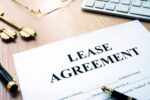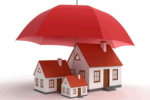Benefits of Home Automation

- Convenience. This is one of the primary reasons people start down the smart-home path. It just makes life a little easier when your home automates all the mundane tasks you used to have to do on a day-to-day basis.
- Safety. A lot of smart-home technology is centered around your home’s security system, and there’s a good reason for that. No one piece of security equipment will protect your home comprehensively, but a network of pieces of equipment all working and thinking together can.
- Sustainability. A lot of energy is wasted when you leave the lights on or keep your AC running when you’re gone for the weekend. A truly smart home will adjust itself to your habits and make sure your environmental impact is a little lighter.
- Savings. You waste a lot of money when you leave things running unnecessarily. Your smart home will improve your economic efficiency by helping you remember to turn things off or down when they’re not needed
- Detectors – Smart detectors provide peace of mind, so you aren’t left worrying that you forgot something. Smoke and carbon monoxide detectors are vital additions to any home. Gas and water leak detectors are good additions as well.
- Heating and Cooling – With the initial success of 2011’s Nest Learning Thermostat, this product category is most associated with home automation.
- Lighting – With the ability to control lights through your tablet or phone, intelligent lighting has become the initial step many take in setting up smart home technology.
- Security Systems – This area has taken home automation to the next level. A lot of the newer, more advanced smart home tech is in this category, with keyless entry, camera equipment, and more. D
- Hubs – Hubs, for the most part, are what tie your systems together. .
- Appliances – Get a text message from your washer when a load finishes. Have your fridge create your grocery list for you. Shut the coffee pot off from work. Smoke a brisket for a few hours while remotely controlling its temperature. All possibilities with smart appliances.
- Energy Management – Track your energy use and make changes in real time, from any location.
- Lawn and Landscape Care – Control your pool cleaner, mow your lawn or set the irrigation system, all via smartphone app.
- Window Coverings – Automatic shades and blinds timed to open or close with your bedtime or wake up call.
















 Kim N. Bregman
Kim N. Bregman